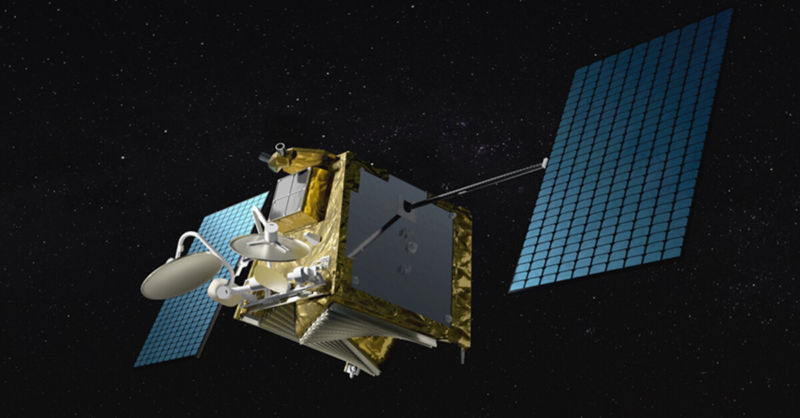
OneWeb’s low-Earth satellites hit 400Mbps and 32ms latency in new test

OneWeb says a test of its low-Earth orbit satellites has delivered broadband speeds of more than 400Mbps with average latency of 32ms.
“The tests, which took place in Seoul, South Korea, represent the most significant demonstration of the OneWeb constellation to date, proving its ability to provide superior broadband connectivity anywhere on the planet,” OneWeb said in an announcement yesterday.
The company said it’s on track toward creating “a fully functioning global constellation in 2021 and delivering partial service beginning as early as 2020.” The test described yesterday involved six OneWeb satellites that were launched in February. OneWeb says its commercial network “will start with an initial 650 satellites and grow up to 1,980 satellites.”
While the 32ms latency figure is an average, the 400Mbps result seems to be the peak speed delivered during the test. OneWeb said its test also demonstrated “seamless beam and satellite handovers; accurate antenna pointing and tracking; [and] live-streamed video at resolutions up to 1080p.”
OneWeb originally promised service in Alaska “as early as 2019,” but by February 2019 the company said it would only be able to provide customer demos by 2020.
SpaceX and Amazon service in the works
OneWeb is one of several companies aiming to provide global broadband connectivity with a network of low-Earth satellites. Current satellite systems are hampered by median latency of nearly 600ms, making them an unsuitable replacement for cable or fiber systems. But the lower orbits used by OneWeb and other companies should result in latencies that are much closer to wireline quality.
Federal Communications Commission testing found that fiber ISPs deliver median latencies of 12ms to 20ms, while cable ISPs deliver median latencies of 15ms to 34ms. DSL providers were measured at 25ms to 80ms. (See page 477 of this FCC report for latencies by ISP.)
OneWeb’s biggest competitor so far is SpaceX, which has FCC permission to launch nearly 12,000 low-Earth satellites. OneWeb received its initial FCC approval in June 2017, while SpaceX got its first major FCC approval in March 2018 and launched 60 satellites in May 2019. SpaceX lost contact with three of the 60 satellites.
More recently, Amazon revealed plans for a similar broadband-satellite service, and the company applied for FCC authorization earlier this month.




